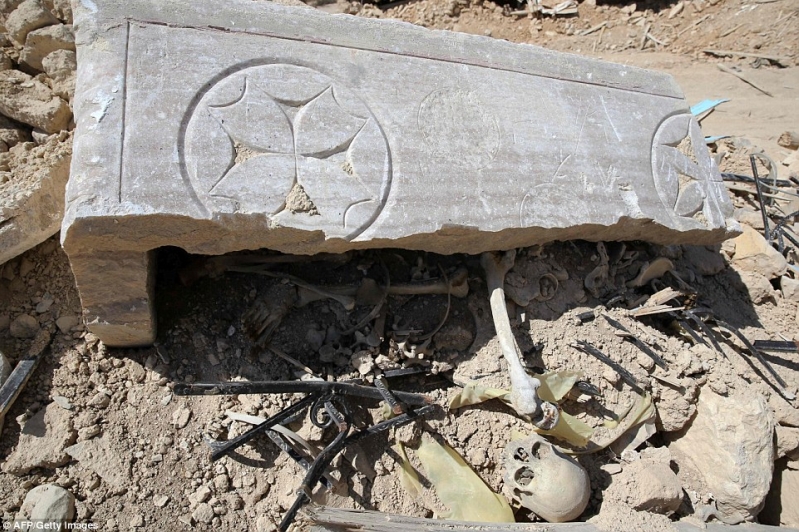
The bones of a Christian saint who was martyred for refusing to deny his faith have reportedly been unearthed amid the rubble of an ancient Syrian monastery destroyed by Islamic State.
According to a report from the Associated Press, most of the fifth-century St. Elian, or Mar Elian, a monastery in the town of Qaryatain was demolished by the militant group.
However, after the town was recaptured by Syrian government forces last week, experts discovered the bones of saints, clearly visible among the wreckage of the ancient structure.
The bones are thought to be those of St. Elian, also known as St. Julian of Emesa, which is the ancient name for the Syrian city of Homs. St. Elian, a physician, was martyred in 284 A.D. after his refusal to renounce Christianity, according to Fox News.
The U.K.-based Syrian Observatory of Human Rights reported that ISIS destroyed the monastery in August 2015, determined to desecrate and destroy Christian symbols and relics.
"They pulled it down using bulldozers claiming that 'the monastery is worshiped beside Allah,' SOHR said in a statement.
At the time, the extremist group posted images of them demolishing the Catholic site to various social media accounts. They also trashed an ancient church next to the Assyrian Christian monastery, and desecrated a nearby cemetery, breaking the crosses and smashing nameplates.
Qaryatain, once home to a thriving Christian population, was captured by IS last summer as part of the terror group's ongoing campaign to establish its Caliphate, or state ruled by Sharia Law, across Iraq and Syria.
At least 230 people were kidnapped amid the fighting, including numerous Christians who were seeking refuge in a church. The group issued a "safety contract" for Christians still living in the town comprised of 11 specific commandments, including one which prohibited praying out loud to Jesus Christ under penalty of death.
The Mirror notes that Syrian government troops have since taken back control of the town, but have allowed only limited access to journalists since they are still clearing explosives and mines left by the terror group.
Channel 4 anchor Lindsey Hilsum reported that a Syrian government colonel suggested that over the past year, the militant group used the saint's former living quarters to gather gas canisters and create explosive devices.
"You come somewhere like this, and think about the way Islamic State operates - the targets they choose, someone else's religion - and that is horrific," Hilsum said.






